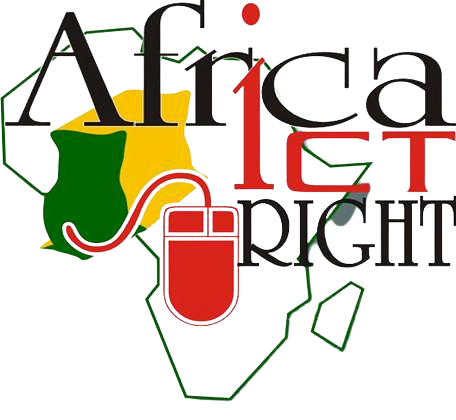Reflections On Our 10 Year Anniversary

As we approach our 10th anniversary, I would like to talk about how Africa ICT Right (AIR) was born.
In September 2006, I travelled to the Eastern region of Ghana to complete an IT job for my employer and that is when I first encountered the harsh reality of the digital gap in rural areas. Computer access was limited and communities were not equipped to participate in the digital revolution that was rapidly engulfing the entire planet. The idea for Africa ICT Right came to me right after this experience.
Access to information and communication technology (ICT) is essential in developing countries like Ghana because it is key to improving a country’s educational and economic prospects. However, the high cost of new equipment, limited infrastructure, and the lack of IT knowledge and proficiency have made it difficult for people to access ICT.
The digital divide is not only a divide between people who have access to ICT and people who don’t. It’s also a divide between people who have knowledge of ICT and those who don’t, between people who realize the opportunities presented by ICT and those who don’t. It encompasses an infrastructure gap, a knowledge gap and a psychological gap.
Upon closer examination, I realized that there was also a gender gap. Girls are not as enthusiastic as boys when it comes to technology, mainly because it is thought to be male territory. Fewer girls end up pursuing tech or engineering careers for the same reason. So a focus on girls and technology was also necessary.
A motivational remark by one of the illustrious sons of Africa summarizes the need for ICT as a facilitator for socio-economic development and to bridge the digital divide:
“We paid the price of not taking part in the Industrial Revolution of the late eighteenth century because we did not have the opportunity to see what was taking place in Europe. Now we see that information and communication technology has become an indispensable tool. This time, we should not miss out on this technological revolution”
- Professor F.K.A. Allotey, a distinguished Ghanaian scholar.
I strongly believe in Professor F.K.A. Allotey’s words and also have great passion for technology. So, I made a life-changing decision to resign from my job and start a nonprofit to help bridge the digital gap in these underserved communities.
In April 2017, Africa ICT Right was duly registered as an NGO, out of the belief that the modern world is in the midst of a profound transformation in which personal computers, mobile phones and Internet technologies play a critical role but there is great inequality in the distribution of these tools, which is detrimental not only to underserved communities, but also to our society.
Running an organization like AIR, with an important and ambitious mission, can be a challenging task. However, our strong desire and determination to bridge the digital gap of people living in deprived communities in Ghana has kept us going.
Some of the challenges facing our organization are inadequate funding for our programs/projects and the absence of a permanent office space for AIR operations.
We have accomplished a lot over the years but we have a lot more ground to cover. In the last nine years, 10,608 students, 219 teachers and 98 schools have benefitted from our programs. AIR has started mapping out our strategy for the next three years. Central to this is proving the impact we have on communities and delivering better quality services to our beneficiaries. After making great strides in our programs, we now need to establish a specific framework for program rollout. Additionally, we need to ensure that engagement with our beneficiaries does not end with service, but is the start of a long-term relationship with them.
Our goal is to increase our impact dramatically in the coming years. Another 12,436 schools and 93,797 teachers in Ghana need access to computers. If we can provide computers and training to these schools, it would benefit a total of 708,730 girls. AIR’s Mobile4Life project in Techiman Municipality will provide mobile phones to pregnant women and healthcare workers. These women can access important medical information that could potentially save their lives.
Our success is contingent on working with partners that share a passion for our mission. I’d like to thank those who have helped us get this far, and welcome all those who will be a part of our future.
As ever, I’m grateful to each of you who has passionately involved yourself in our activities, supported us, shared our story, or helped us adapt and learn along the way.
It is always heartwarming to hear that lots of people are sacrificing their time, energy, and resources to fundraise or support our projects’ continuity. We really appreciate each of you and especially Jeffrey Karp and pray that your hearts will be filled with joy and happiness.